 There are many ways to define the term ‘obese’. You could say it is when your body mass index (BMI) is over thirty. You could say it is when someone is abnormally fat. You could even say that, for example, it is when your body has too much visceral fat. To put it bluntly, obesity is when you carry around so much fat that it affects your health – and not in a positive manner. Obesity, in fact, not only leads to a number of health issues but could also lead to your death. Among the many issues faced by obese men are testosterone concerns, and we will be taking a look at that in a moment. Let’s first take a look at the issue of obesity and why it is a concern.
There are many ways to define the term ‘obese’. You could say it is when your body mass index (BMI) is over thirty. You could say it is when someone is abnormally fat. You could even say that, for example, it is when your body has too much visceral fat. To put it bluntly, obesity is when you carry around so much fat that it affects your health – and not in a positive manner. Obesity, in fact, not only leads to a number of health issues but could also lead to your death. Among the many issues faced by obese men are testosterone concerns, and we will be taking a look at that in a moment. Let’s first take a look at the issue of obesity and why it is a concern.
Why are men increasingly becoming obese? First, let us take a look at what the statistics say. Currently, in the U.S., it is estimated that two out of every three people are overweight or obese. One in three adults is considered obese. Seventy-four percent, that is almost three-quarters of the male population in the United States, are either overweight or obese. Furthermore, out of this percentage, a further four percent have what is considered extreme obesity. This is when your body weight is a hundred pounds or more over your ideal weight.
This leads to the question of WHY? For the most part, obesity is a lifestyle issue or due to other relevant factors, although, in a few, it is the result of their genes, although this is not really an excuse for the most part.
It is estimated that approximately every one in six people carries a fat mass and obesity-associated gene. This gene is commonly referred to as the FTO gene. Of the people that are affected, it is estimated that about seventy percent face the likelihood to become obese. These people, according to research, have higher than average levels of the ghrelin hormone, a hormone that makes you feel hungry. The FTO gene tends to change the way your brain responds to this hormone and food images in the parts of the brain that are linked to eating and reward.
Besides eating more, people with this gene also tend to favor food higher in calories even before overweight and obesity become an issue. Where people have a double copy is this gene, i.e. two, one from each parent, the impact is doubled.
Of course, it is easy to blame weight gain or obesity on a faulty gene. Although it may be a contributing factor for a small percentage of the obese population, it is not, however, the major contributor to obesity in the larger sector of the obese population.
Certain medications tend to promote weight gain. Among these are included:
It would seem that people taking antidepressants stand a 58 percent greater risk of becoming obese. Certain antidepressants are so effective in promoting weight gain that they are prescribed to older, underweight people and those who have lost weight due to the occurrence of AIDS.
However, weight gain when on antidepressants is not always directly due to the medication itself. Often, people with depression tend to lose weight due to depression, and once on medication, feel better, eat more, and pick up weight. Overeating because of depression is often a psychological response in order to feel good, and thus not directly linked to the medication itself. One can not thus summarily blame weight gain when being treated for depression on the medication. Other factors may contribute, although certain medications do seem to promote the condition.
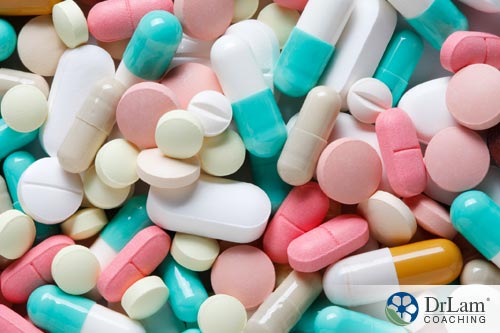 Corticosteroids are easily taken up into the system. Although they are powerful anti-inflammatory drugs, they could cause elevated blood sugar levels, insulin resistance, and thus promote the storage of fat – leading to weight gain.
Corticosteroids are easily taken up into the system. Although they are powerful anti-inflammatory drugs, they could cause elevated blood sugar levels, insulin resistance, and thus promote the storage of fat – leading to weight gain.
Beta blockers are medications typically prescribed for hypertension and to prevent heart attacks, but they only count for a gain of between two to four pounds when the medication is initially administered. Beta blockers decrease your metabolic rate by approximately ten percent when first taken. They may also have a negative effect on the energy metabolism process.
Newer generation beta blockers seem not to have this effect, however.
People who regularly use antihistamines to control hayfever and allergies tend, on average, to weigh more than those who do not. The reason is that antihistamines target your body’s H1 histamine receptor. Besides playing a role in your body’s allergen response, the H1 histamine receptor also plays a role in your brain’s circuitry, most especially the part that has to do with your appetite. When this receptor is suppressed, your appetite is stimulated, leading to possible obesity in the long-term.
The use of certain antipsychotic drugs may result in elevated cholesterol levels, diabetes, and a dramatic increase in weight gain. These are all aspects of metabolic syndrome.
These antipsychotics seemingly cause elevated levels of AMP-kinase, a brain enzyme that blocks your H1 histamine receptors. This results in a larger appetite and thus weight gain.
Many of these drugs also have a negative impact on your blood sugar levels, which, in turn, could lead to insulin resistance and ultimately type 2 diabetes – which could also potentially lead to weight gain.
Insulin, commonly used by diabetics to stabilize blood sugar levels, is an anabolic hormone that promotes the storage of protein, glucose, and fat. The only way to counteract this is by regular exercise and diet. Additionally, certain oral medications used by diabetics stimulate the pancreas to secrete insulin which may encourage weight gain.
Ironically, many of the medications that may contribute to weight gain are used for treating certain conditions that are often the result of obesity.
Research indicates that lack of sleep is a contributing factor when it comes to obesity. Sleep deprivation results in the production of ghrelin, an appetite-stimulating hormone, as well as a lowered leptin production. The hormone leptin works at suppressing your appetite. Those who have a chronic condition including adrenal fatigue with insomnia may fall into this category.
Studies suggest certain foods act as endocrine disruptors, resulting in a fatty liver, metabolic syndrome, and an altered lipid energy metabolism. Sugar, for example, is made up of fructose and glucose. While glucose can be metabolized by every cell in the body, the same can not be said about fructose. Fructose is metabolized in the liver, and, when the glycogen levels become too high, is stored as fat. The liver, in time, becomes insulin resistant, resulting in obesity, insulin resistance (and possibly diabetes), and metabolic syndrome, among others.
 Obesity is on the rise in richer as well as middle-income societies globally. Lack of physical activity has been cited as a possible cause. The problem seems to be caused by people not doing the physical activities that burn the number of calories consumed, resulting in excess calories being stored in the form of fat.
Obesity is on the rise in richer as well as middle-income societies globally. Lack of physical activity has been cited as a possible cause. The problem seems to be caused by people not doing the physical activities that burn the number of calories consumed, resulting in excess calories being stored in the form of fat.
Physical activity does not imply vigorous exercise, however. Instead, it refers to any activity that burns calories. This includes walking and doing your chores. Those with debilitating conditions such as chronic fatigue, fibromyalgia and adrenal fatigue with limited physical energy will be particularly at risk.
Obesity due to diet is in many cases due to bad eating habits, i.e. where unhealthy, kilojoule-laden food is regularly consumed without adequate exercise. The ‘quick meal’ and processed foods rich in fat and additives has become the norm in many societies.
Unhealthy food choices include the following:
Obesity in men may cause more health concerns than in women. Among the most common health concerns are that it may:
 Males start producing testosterone shortly after birth. Thereafter, levels rise, leveling off during the late teens, and decreasing after about thirty years of age. Although this is normal, obesity plays a large role in a lowered testosterone production.
Males start producing testosterone shortly after birth. Thereafter, levels rise, leveling off during the late teens, and decreasing after about thirty years of age. Although this is normal, obesity plays a large role in a lowered testosterone production.
Testosterone, in males, plays a very important role in protein development, thereby affecting just about every function in the male body, including the development of his sexuality and certain behaviors. The different testosterone functions in men include:
When a male reaches puberty, testosterone levels rise resulting in pubic hair, the growth of the penis and testicles, encouraging the growth of pubic, facial, and body hair, resulting in a deepened voice, and enhancing muscle growth. This is the period during which males become aware of their sexuality and begin developing sexual urges. Lower testosterone levels, however, reduce the desire for sex.
Testosterone plays an important role in the development of male muscles, and thereby, strength. It does this by encouraging the number of neurotransmitters produced that influence tissue growth. It also plays a vital role when it comes to the body increasing its growth hormones, allowing men to build more muscle, usually by means of exercise.
Besides the role it plays in the tissue, specifically muscles, it also has an important function in bone density, as it aids in sending messages to your bone marrow, encouraging the production of red blood cells. Men who have lower testosterone levels tend to develop bone fractures easier.
Testosterone is important for the metabolization of fat, which is why obese men have less of this hormone. Conversely, fat causes lower testosterone production, while lower testosterone levels encourage obesity.
The male endocrine system consists of the hypothalamus, pituitary gland, thyroid gland, parathyroid glands, adrenal glands , pancreas, and testicles. This system of glands is responsible for a number of vital functions within the body, amongst them the production of hormones responsible for growth and development, reproduction, mood, and sleep. Testosterone is one of the most important hormones in the male body. When complications arise in the endocrine system, the production and function of this hormone are compromised, resulting in a number of health issues.
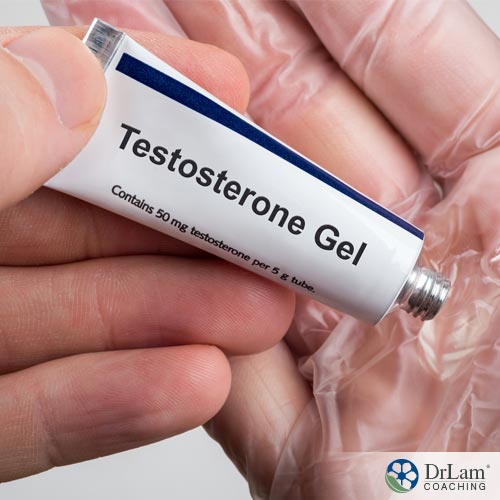 The endocrine system is made up of a number of glands that, to a large respect, play a role in just about every bodily function. Foremost among these glands is what is referred to as the HPA (hypothalamic-pituitary-adrenal) hormonal axis. The HPA axis is one of the mechanisms responsible for testosterone concerns and your body’s automatic stress response or as it is also referred to - the NeuroEndoMetabolic(NEM) stress response.
The endocrine system is made up of a number of glands that, to a large respect, play a role in just about every bodily function. Foremost among these glands is what is referred to as the HPA (hypothalamic-pituitary-adrenal) hormonal axis. The HPA axis is one of the mechanisms responsible for testosterone concerns and your body’s automatic stress response or as it is also referred to - the NeuroEndoMetabolic(NEM) stress response.
The hypothalamus, when stress is perceived, releases a corticotropin-releasing hormone (CRH) that binds to receptors which are on the pituitary gland. This results in the release of the adrenocorticotropic hormone (ACTH). ACTH, in turn, binds to receptors present on the adrenal cortex of the adrenal glands (which are each situated at the top of one of the two adrenal glands) and stimulates cortisol release. Once enough cortisol is released to enable you to handle the stressful situation, or when the stressful situation passes, feedback is sent to the hypothalamus and thus ACTH production is reduced, things are once more in balance, and a state of homeostasis is reached.
When stress is ongoing, however, the body keeps on producing cortisol, increasing the production levels if the stress is severe. The constant and possibly increased production of this hormone leads to a number of health conditions that could be debilitating in nature. These include constant fatigue, weight gain, hormonal imbalance, headaches, depression, mood swings, and anxiety... to name a few.
After a while, the adrenal glands can no longer keep up with the cortisol demand put on it by the body to handle stress, and cortisol supply is taken up by other parts of the body. Ultimately, the adrenal glands are unable to function as intended and your cortisol levels are too low. Once you reach this stage of adrenal gland fatigue your symptoms have gotten progressively worse and recovery is a long-term uphill battle.
In males, testosterone production is a concern as cortisol production directly affects a male’s testosterone production as well as the production of other essential hormones. Putting it simply, low cortisol is usually associated with low testosterone.
 From an NEM perspective, multiple organs, systems, and pathways are involved when the body is subjected to constant stress. While the adrenals are initially the primary defense against mild or intermittent stress with its increase in cortisol production, the other systems are kicked into action when stress is severe or prolonged.
From an NEM perspective, multiple organs, systems, and pathways are involved when the body is subjected to constant stress. While the adrenals are initially the primary defense against mild or intermittent stress with its increase in cortisol production, the other systems are kicked into action when stress is severe or prolonged.
In response to stress, the NEM response is automatically activated, with your body deciding which organs to activate and which to allow to rest, as well as which hormone’s production to increase and which to decrease. In effect, when subjected to constant stress, those systems deemed not necessary for survival are decreased or even shut down in order for your body to address threats.
Hormone production is governed by the neuroendocrine system. The hormonal stress response is primarily governed by the adrenals, thyroid, and male testes (in males) with the HPA axis and hypothalamic-pituitary-gonadal (HPG) axis the key pathway regulators. When the adrenal glands become fatigued and are unable to function properly, fatigue is the result, which in turn, results in lower libido as reproduction is not deemed necessary for your immediate survival.
Besides a lower libido, heightened cortisol production during the initial stages of adrenal fatigue results in a lowered production of other hormones. As adrenal fatigue progresses, however, and the adrenals become unable to produce the cortisol needed, more systems may be shut down and other organs and pathways mobilized to produce this hormone. Resultantly, the testosterone production in the testes is affected, as is the hormone production in other body systems and organs, which will be discussed more below. If of a long-lasting nature, this state of affairs has a debilitating effect on the body as a whole, resulting in burnout as the body eventually runs out of ways to produce cortisol.
Among the symptoms associated with this ‘burnout stage’ are included:
In men, testosterone is produced in the adrenals and the testes. There is, however, a link between cortisol and testosterone production.
Pregnenolone is a precursor hormone that is synthesized from cholesterol. This happens mainly in the adrenal glands, although it is also synthesized in other parts of the body, including the testicles, liver, brain, retinas, and by the skin. Pregnenolone is considered a master hormone as most hormones are synthesized from it. These include testosterone, DHEA, progesterone, estrogen, and cortisol.
Testosterone production becomes a concern when the body is under constant stress and more and more cortisol is produced. As the body demands more cortisol to deal with the problem, the pregnenolone reserves are used to synthesize the cortisol needed to deal with the stressful situation, leaving less of this hormone available for the synthesis of other hormones in the adrenal glands. If, however, adrenal fatigue sets in, and the adrenals are no longer able to cope with the demand, the pregnenolone manufactured by other parts of the body is reserved for cortisol production.
The increased cortisol production results in the decreased production of testosterone which has its own set of complications.
This implies testosterone production or lack thereof is directly linked to your body’s cortisol production and by implications is linked to adrenal fatigue, but there is more to this when obesity comes into play.
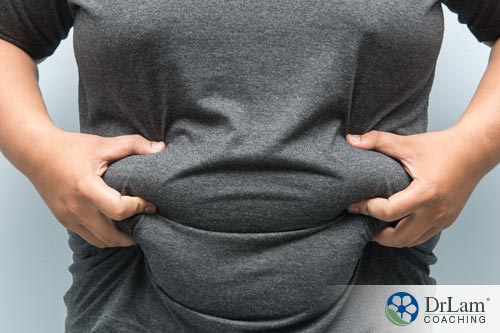 Studies indicate that there is a strong correlation between obesity and lower cortisol levels in men. This lowered cortisol production is a concern, as it leads to a number of health issues.
Studies indicate that there is a strong correlation between obesity and lower cortisol levels in men. This lowered cortisol production is a concern, as it leads to a number of health issues.
When the hormones are in balance and you exercise, more cortisol is released during this time. The cortisol, under these conditions, allows fat stores to be freed so that it can be used as an energy source. Insulin is usually lower and lipase, a fat burning enzyme, is released, thereby blocking lipoprotein lipase, a fat storing enzyme.
However, when your diet is incorrect and you eat many carbohydrates or foods high in sugar, insulin levels are spiked. This inhibits your body’s fat burning ability. In effect, raised insulin levels lead to the storage of fat.
In the long term, when stress (whether psychological or physical, e.g. stress put on the body due to diet) is prolonged, cortisol production is increased and may be continuous in nature. This occurs in early stages of adrenal fatigue. The result is that your pancreas works harder to keep up insulin production due to higher blood sugar levels.
In those instances where someone is obese, it follows that their cortisol levels are higher than they should be, indicating a body that is in a state of hormonal imbalance. As the adrenal glands become worn out, finding it increasingly difficult to constantly? produce elevated levels of cortisol, other parts of the body also help with the production of this hormone, including the testes.
Obesity is thus a testosterone concern, as it results in increased cortisol production over time which in turn results in a decrease in testosterone production and thus lower testosterone levels when the body is under unrelenting stress.
A hormonal imbalance in men, where their testosterone levels are particularly low, results in a number of related symptoms. These include the following:
Although lower testosterone levels may not necessarily be the cause of a lowered sex drive, it may be one of the causes. As libido is different for all men, what one man may consider a low sex drive is not necessarily the same for another. What constitutes a ‘normal’ sex drive is thus difficult to define, so determining sex drive is an individual affair.
If, however, your libido shows a downward spiral for what is normal for you, testosterone as a factor bears looking into.
 Besides possibly stimulating your sex drive, testosterone helps a man both achieve and maintain an erection. Although testosterone is not the sole cause of an erection, it does stimulate certain receptors present in the brain to produce a molecule called nitric oxide. Nitric oxide triggers chemical reactions in the body that result in an erection. Lower testosterone levels, however, results in difficulty with achieving as well as maintaining an erection.
Besides possibly stimulating your sex drive, testosterone helps a man both achieve and maintain an erection. Although testosterone is not the sole cause of an erection, it does stimulate certain receptors present in the brain to produce a molecule called nitric oxide. Nitric oxide triggers chemical reactions in the body that result in an erection. Lower testosterone levels, however, results in difficulty with achieving as well as maintaining an erection.
Testosterone concerns, however, are not the sole reason a man does not attain or sustain an erection, as a number of health issues could contribute towards the problem. These issues include thyroid problems, high cholesterol, high blood pressure, diabetes, stress, anxiety, and depression. These problems are common in those who are obese and may be contributing factors that help lower testosterone levels.
Testosterone plays a role in semen production. It, therefore, follows that lower levels of this hormone result in smaller semen volume.
Although a lower testosterone count most certainly influences semen production, it does not necessarily follow that you have a lowered semen production due to lower levels of testosterone. Other factors contributing to a lowered semen production include:
Testosterone plays a role in building muscle. Loss of muscle mass and strength has been linked to lowered testosterone levels in men, especially during the aging process.
Osteopenia or lower bone mass (bone density) is quite common in men with lower levels of testosterone. It is also one of the risk factors for osteoporosis. Lower testosterone levels may thus increase your chances of fractures.
Lower testosterone levels are one of the symptoms of adrenal fatigue. One of the main symptoms of this condition is extreme fatigue and hormonal imbalance, i.e. lower testosterone, for example. Although fatigue is not necessarily the result of lower levels of this hormone, those with this condition do tend to experience fatigue.
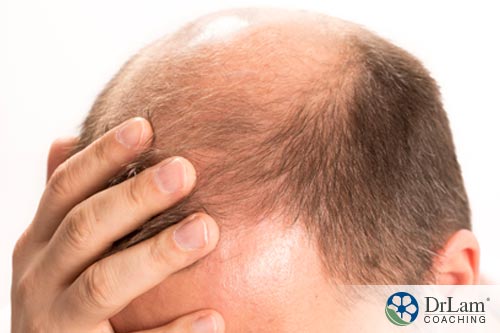 Many older men, as they age, start going bald. This may be due to a steady, natural decline in testosterone or due to their genes. Younger and obese men who experience hair loss, however, may ascribe this to lower testosterone levels.
Many older men, as they age, start going bald. This may be due to a steady, natural decline in testosterone or due to their genes. Younger and obese men who experience hair loss, however, may ascribe this to lower testosterone levels.
Studies suggest that men that have lower testosterone levels may experience irritability, mood swings, and depression. This may be ascribed to the hormonal imbalance experienced due to lower testosterone levels. Accompanying the lower testosterone levels is a higher occurrence of cortisol. The result is that the production of the ‘feel good’ hormones in the brain is compromised, giving rise to diverse symptoms, including anxiety, mood swings, frustration, lack of focus, depression, and so on.
When your testosterone levels are too low, estrogen, the female sex hormone level, can be high on relative or absolute basis is usually higher. This does not necessarily mean estrogen levels in males with a low testosterone count are higher than what is considered normal, however. Estrogen levels may be normal, while the testosterone levels are abnormally low, resulting in a relative state of estrogen dominance. The result is symptoms much like those experienced by menopausal women, i.e. breast tenderness, breast enlargement, and hot flashes.
 Traditionally, a man’s testosterone concerns when it comes to lower testosterone levels has been to boost his levels by means of testosterone replacement therapy. Besides boosting your testosterone levels, you may have more energy and a higher sex drive. Other possibilities are that your muscle mass starts building up, and you may even start losing some weight.
Traditionally, a man’s testosterone concerns when it comes to lower testosterone levels has been to boost his levels by means of testosterone replacement therapy. Besides boosting your testosterone levels, you may have more energy and a higher sex drive. Other possibilities are that your muscle mass starts building up, and you may even start losing some weight.
There are, however, possible risks with regards to testosterone replacement therapy according to certain research. These include skin problems such as oily skin and acne, premature hair loss, anxiety and panic attacks, a higher risk of blood clots, and a higher chance of getting a heart attack or stroke. More research is being conducted with regards to some of these risks, however, as previous research undertaken was not 100 percent conclusive.
Some studies suggest that men who have had prostate cancer should be very careful before embarking on or stay away from testosterone replacement therapy, although other research suggests that men who have had prostate cancer could have this treatment if conditions were controlled.
Other conditions where western medicine suggests you should not have testosterone replacement therapy include when you have:
Testosterone replacement therapy is also traditionally not recommended for those who have lower testosterone levels due to age unless properly supervised.
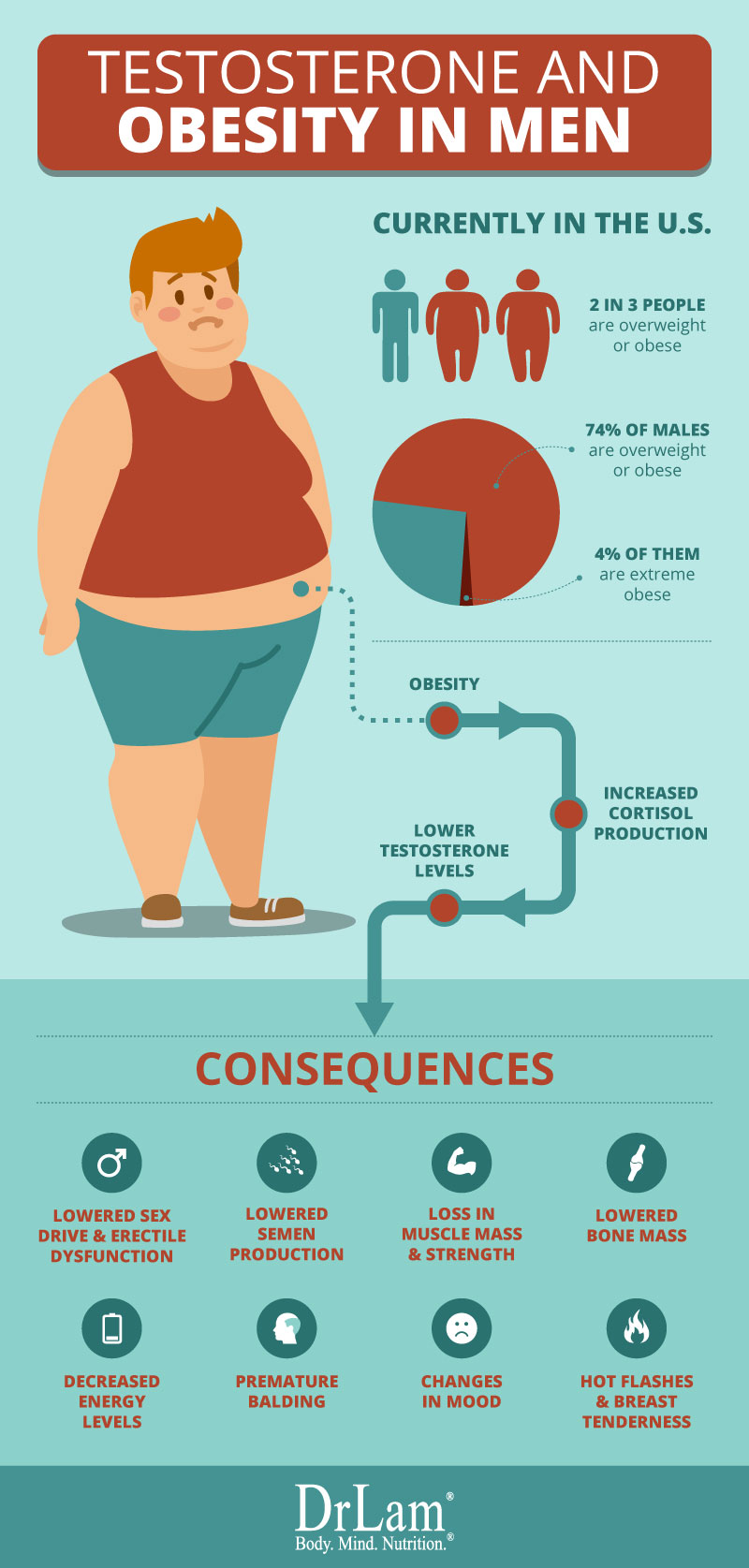
Testosterone replacement therapy is, traditionally, administered in five possible ways:
Pellets are inserted under the skin. These pellets are effective for between three to six months. Minor surgery is needed each time a new pellet is inserted.
These patches may need application more than once a day.
This testosterone patch is placed on the upper gum of the mouth each day. Some men may get gum disease or experience irritation from this method.
Testosterone is available in a gel form that needs to be rubbed into the skin on a daily basis. Care needs to be taken that others do not make contact with the area as it could result in testosterone entering their system. A nasal application is also available, which minimizes this type of risk.
 Probably the easiest and most convenient form of testosterone replacement therapy, you would get an injection every two to ten weeks. This method sees testosterone levels decline between treatments, however.
Probably the easiest and most convenient form of testosterone replacement therapy, you would get an injection every two to ten weeks. This method sees testosterone levels decline between treatments, however.
Regular monitoring is needed if you are on testosterone replacement therapy. This includes having your testosterone levels monitored every few months, and undergoing bone density tests every few years.
If you find your speech slurring, have chest pains, encounter weakness on one side of your body, or have shortness of breath, it is advised that you seek immediate medical attention.
Functional medicine does not address testosterone concerns only. Instead, functional medicine takes into account the balance between your hormones, as this is what influences your health. All related factors are taken into consideration before any form of testosterone management is suggested.
Functional medicine understands that different so-called illnesses and their symptoms may be part of deeper, underlying conditions and that in most circumstances, the different symptoms presented are linked to an underlying root cause.
Although testing is necessary in order to get to the bottom of the problem, functional medicine does not necessarily agree with the use of testosterone replacement therapy as the first line of action when managing testosterone concerns. Instead, it relies to a large extent on determining the cause of the problem, seeing testosterone deficiency as a symptom of a larger, underlying issue.
There are a number of natural ways in which one can boost testosterone levels.
Stress tends to have an extremely negative impact on the body, affecting all parts of the body’s NeuroEndoMetabolic response system. This means it affects just about all aspects of your metabolic function. This may result in unbalanced hormones, often leading to lower testosterone levels in men.
Getting rid of a stressful situation might not always be possible, but much can be done with regards to how you handle it. Also, taking up a hobby, taking ‘me’ time, socializing, or meditation all help negate the worst effects of stress.
Many people do not get enough sleep. Sleep is necessary for the body to repair itself. When you do not get enough sleep, the body is not able to carry out this necessary function, adding to the problem. Studies also show that lack of sleep lowers cholesterol levels.
Men with lower testosterone levels often have low zinc levels. Research as to why this is the case is as yet inconclusive.
If incorporating extra zinc into your diet, do consider asking for professional advice on the matter. Zinc stimulates the thyroid, so if you have thyroid problems, it is better to either avoid taking a supplement or to do so under the care of a healthcare professional. It can also trigger adrenal crashes especially for those in advanced stages of adrenal fatigue.
Exercise is a great way to balance your hormones. Short periods of intense exercise, according to studies, naturally boosts testosterone levels. Weight training is especially good in this regards. About twenty minutes of intensive training a day seems to be beneficial, but it can trigger adrenal crashes. The more advanced? the adrenal fatigue, the greater the risk.
Losing excess weight may address your testosterone concerns naturally. Besides following a healthy diet plan, it includes limiting your intake of sugar. Consider replacing it with natural sweeteners such as stevia or agave. Refined carbohydrates such as white bread and breakfast cereals should also be avoided, as they quickly break down into sugar. Proper timing is key. Those with adrenal fatigue may find losing weight an almost impossible task due to metabolic imbalances, until such time that the adrenal glands are well healed.
 Vitamin D plays a role in increasing testosterone levels and improving sperm. Although vitamin D supplements are readily available, the sun is the key source for the development of this vitamin.
Vitamin D plays a role in increasing testosterone levels and improving sperm. Although vitamin D supplements are readily available, the sun is the key source for the development of this vitamin.
Certain foods are great natural testosterone boosters. Fatty fish, such as mackerel and salmon, for example, are rich in omega-3 fatty acids that inhibit estrogen production in men while improving insulin sensitivity. Take care not to take too much omega-3 – as it has been linked to incidents of prostate cancer.
Certain types of seafood, such as shrimp and tuna are great vitamin D sources. Low-fat milk is also rich in this vitamin plus it has all the nutrients present in full-fat milk without the fat content. Eggs are another rich source of vitamin D while the cholesterol in eggs may help the body produce more pregnenolone and thereby aid in testosterone production.
Pumpkin seeds are rich in zinc, while the high magnesium levels in wheat bran, almonds, beans, and sunflower seeds are high in magnesium, which helps with testosterone production. Oysters, long spoken of as an aphrodisiac, are full of zinc, as is most shellfish.
Saturated fats are beneficial for testosterone production and are a lower health risk than polyunsaturated fats. A great source is coconut oil which does not change its chemical structure when heated.
Optimizing adrenal function is perhaps the most frequently overlooked and underappreciated natural testosterone boosting approach. It is almost impossible to have optimal testosterone function if the adrenal glands are weak. Those into the advanced stages of adrenal fatigue frequently complain of low sex drive, erectile dysfunction, and loss of vitality for good reasons.
It is easy to be misled by laboratory tests that testosterone replacement is the only option. Premature and overly aggressive testosterone replacement therapy has many complications and long-term negative consequences, even when properly supervised. There is much we do not know about the body’s internal feedback and regulatory system when it comes to testosterone long term.
Manipulating male hormones with external medication as well as natural compounds with stimulatory properties such as maca, ginseng, ashwagandha, licorice, tribulus, or deer antler may work well in the beginning – giving the sufferer a false sense of security. However, in reality, it is nothing more than a temporary patch and energy boost, while the underlying reason for low testosterone goes unattended.
 Overtime time, many report a return of fatigue. As the testosterone, glandular, or herbal dosage needed to be increased to achieve the same clinical outcome, the body was metabolically stimulated. This can lead to insomnia, fast resting heart rate, arrhythmia, hyperthyroid function, anxiety, and panic attack. Abrupt withdrawal of testosterone replacement can also lead to rebound effects that can be very devastating.
Overtime time, many report a return of fatigue. As the testosterone, glandular, or herbal dosage needed to be increased to achieve the same clinical outcome, the body was metabolically stimulated. This can lead to insomnia, fast resting heart rate, arrhythmia, hyperthyroid function, anxiety, and panic attack. Abrupt withdrawal of testosterone replacement can also lead to rebound effects that can be very devastating.
A functional medicine approach that is holistic in nature should be considered as the first line of defense. It is a far more gentle way to boost testosterone function because the body is given the ultimate control. Regulatory loops are intact without external influence. Energy and vitality so derived are smooth, clean, long term, and powerful. Low libido is gradually reduced as the body deploys the proper raw material to make the necessary amount of testosterone as it sees fit. The risk from cancer is avoided. Energy derived does not feel hyped, artificial, or short term. There is a genuine sense of well-being as vitality returns.
Testosterone concerns in obese men seem to be a sign of the times. The most common reason for these two conditions seems to be related to lifestyle. People do not necessarily eat more, yet weight gain is on the increase, with testosterone deficiency and its results one of the symptoms.
More often than not, it is not how much we eat that matters, but rather what we eat accompanied by the more sedentary lifestyle we lead these days.
In most instances, it would seem that the two major solutions to this problem are to be found in diet and exercise. By changing our diet, incorporating testosterone boosting food, eliminating fats and refined carbohydrates, and doing about twenty minutes of intense exercise a day, much can be done to address testosterone concerns naturally and effectively.
There is much you can do address your testosterone concerns from a holistic point of view. By changing your diet, adding testosterone boosting food to your diet, addressing your stress issues, and twenty minutes of high-impact exercise a day does wonders.